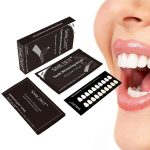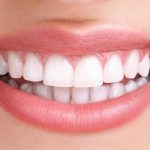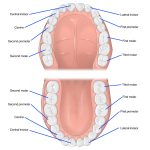DIY Teeth Whitening: Effective Home Remedies to Whiten Fillings on Teeth
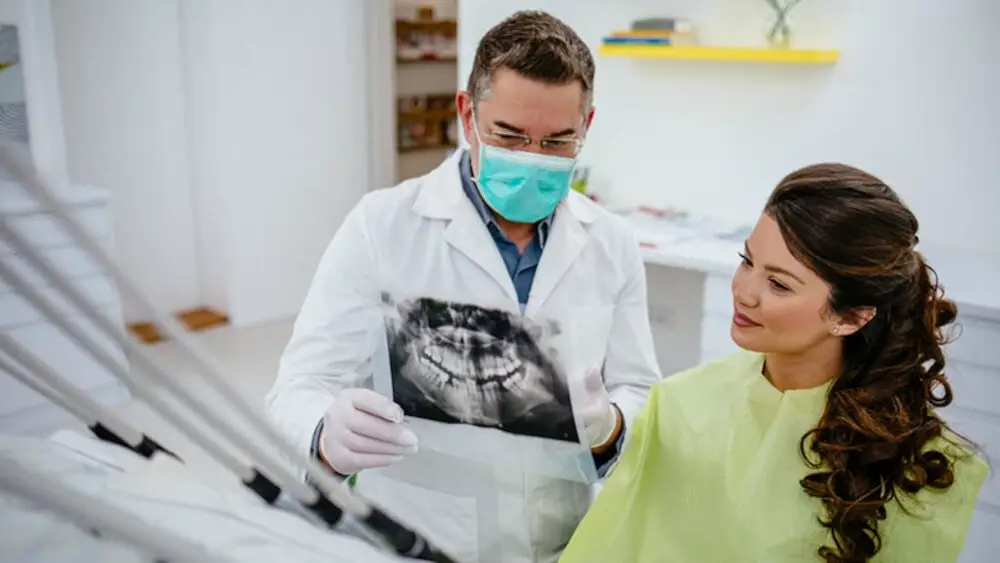
A bright, white smile is often considered a symbol of health and beauty. Unfortunately, many people find themselves feeling self-conscious about their teeth due to discoloration or yellowing. Professional teeth whitening treatments can be expensive and time-consuming, but there are several effective DIY remedies for whitening teeth at home, even if they have fillings. With a little patience and effort, you can brighten your smile and boost your confidence without breaking the bank. One of the most common concerns people have when whitening their teeth at home is how to whiten teeth with fillings. Traditional teeth whitening methods may not be suitable for teeth with fillings, as the whitening agents can only penetrate natural tooth enamel. However, there are several home remedies that can effectively whiten teeth with fillings, including natural ingredients like baking soda and hydrogen peroxide. These remedies not only whiten teeth but also promote good oral health and hygiene.
Teeth staining is a common dental problem that affects a lot of people. It occurs when the enamel of the teeth becomes discolored due to various reasons like smoking, consuming certain foods and drinks, poor oral hygiene, and aging. Stained teeth not only affect your appearance but can also have a negative impact on your self-esteem and confidence. Teeth whitening is a popular cosmetic dental procedure that can help to remove stains and discoloration from the teeth, resulting in a brighter and more attractive smile. It is important to maintain good oral hygiene and seek professional teeth whitening services to achieve optimal dental health and a beautiful smile. There are several effective DIY home remedies for teeth whitening, which can be used as a supplement to professional treatment.
Natural Remedies
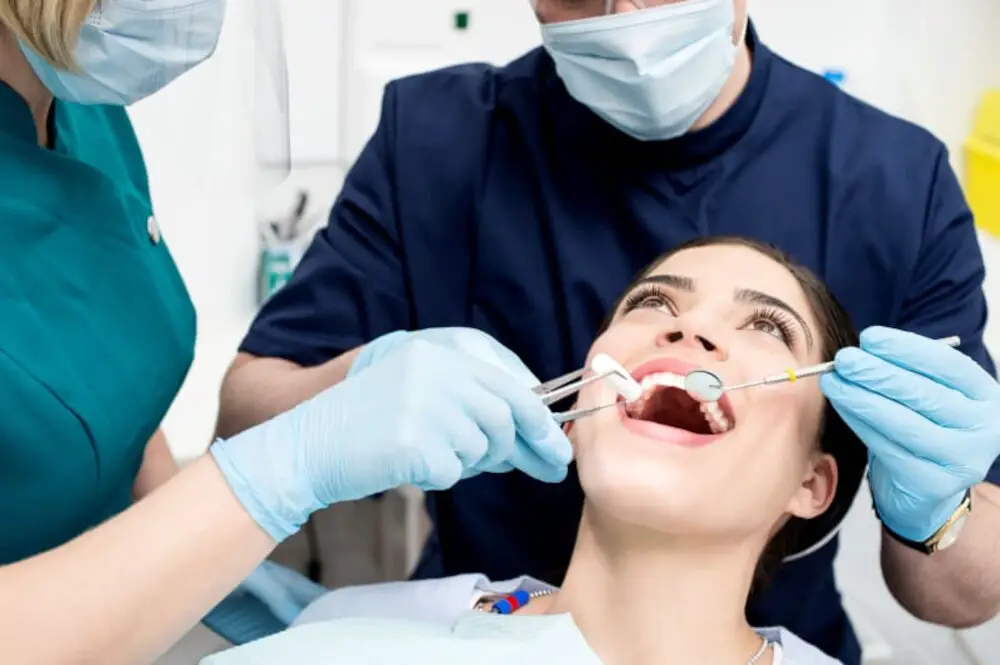
Natural remedies have been used for centuries to treat various ailments, and teeth whitening is no exception. DIY teeth whitening using natural remedies has become increasingly popular in recent years, as people seek to avoid the harsh chemicals present in many commercial teeth whitening products. Natural remedies for teeth whitening include baking soda, hydrogen peroxide, apple cider vinegar, and coconut oil. These ingredients are believed to help remove stains and whiten teeth naturally, without causing any harm to the teeth or gums. Baking soda is one of the most popular natural remedies for teeth whitening. It is a mild abrasive that helps to remove surface stains on teeth. Mixing baking soda with water to form a paste and brushing it onto teeth for a few minutes each day can help to whiten teeth over time. Hydrogen peroxide is another common natural remedy for teeth whitening. It is a bleaching agent that helps to remove deeper stains on teeth. Mixing hydrogen peroxide with baking soda and brushing teeth with the mixture can help to whiten teeth effectively. Apple cider vinegar and coconut oil are two other natural remedies that are believed to help whiten teeth naturally. Apple cider vinegar contains acetic acid, which helps to remove stains on teeth, while coconut oil contains lauric acid, which can help to remove bacteria that cause tooth decay.
One popular home remedy for teeth whitening is a paste made from baking soda and hydrogen peroxide. Baking soda, also known as sodium bicarbonate, is a mild abrasive that can help remove surface stains on teeth. Hydrogen peroxide is a bleaching agent that can penetrate deeper into the tooth enamel to remove tougher stains. When combined, these two ingredients form a powerful mixture that can effectively whiten teeth. However, it is important to use this paste in moderation as excess use can damage the enamel of the teeth. Additionally, it is recommended to consult with a dentist before using any home remedies for teeth whitening to ensure that they are safe and effective for your specific dental needs.
Coconut oil pulling is an ancient Ayurvedic practice that has gained popularity in recent years as a natural remedy for teeth whitening. This method involves swishing a tablespoon of coconut oil in your mouth for 10-20 minutes, preferably on an empty stomach, and then spitting it out. The lauric acid found in coconut oil has antibacterial properties that can help remove plaque and reduce the buildup of harmful bacteria in the mouth, leading to fresher breath and a healthier mouth overall. While there is limited scientific evidence to support the teeth whitening benefits of coconut oil pulling, many people swear by this practice as an effective and affordable way to brighten their smile at home.
Apple cider vinegar rinse is a natural and effective way to whiten your teeth at home. The acetic acid present in the vinegar helps to remove stubborn stains and discoloration on your teeth. To use apple cider vinegar as a rinse, mix a tablespoon of it in a glass of water and swish it in your mouth for a couple of minutes before spitting it out. However, it’s important to dilute the vinegar as it can damage the enamel on your teeth if used in its pure form. Regular use of apple cider vinegar rinse can result in noticeably whiter teeth, but it’s important to note that it may not work for everyone. It’s always best to consult with a dentist before trying any DIY teeth whitening remedies to ensure they are safe for your teeth.
Lemon and baking soda paste is a popular DIY teeth whitening remedy that has been used for ages due to its effectiveness. This combination works wonders for removing stubborn stains on teeth caused by smoking, drinking coffee, or red wine. Lemon acts as a natural bleach that lightens the teeth, while baking soda acts as an abrasive agent that scrubs away surface stains. When mixed together, they create a powerful paste that can help whiten your teeth over time. However, it’s important to note that this remedy should be used with caution as lemon is acidic and can erode the enamel on your teeth if used excessively. It’s best to limit the use of this remedy to once or twice a week to prevent any damage to your teeth.
Overthecounter Products
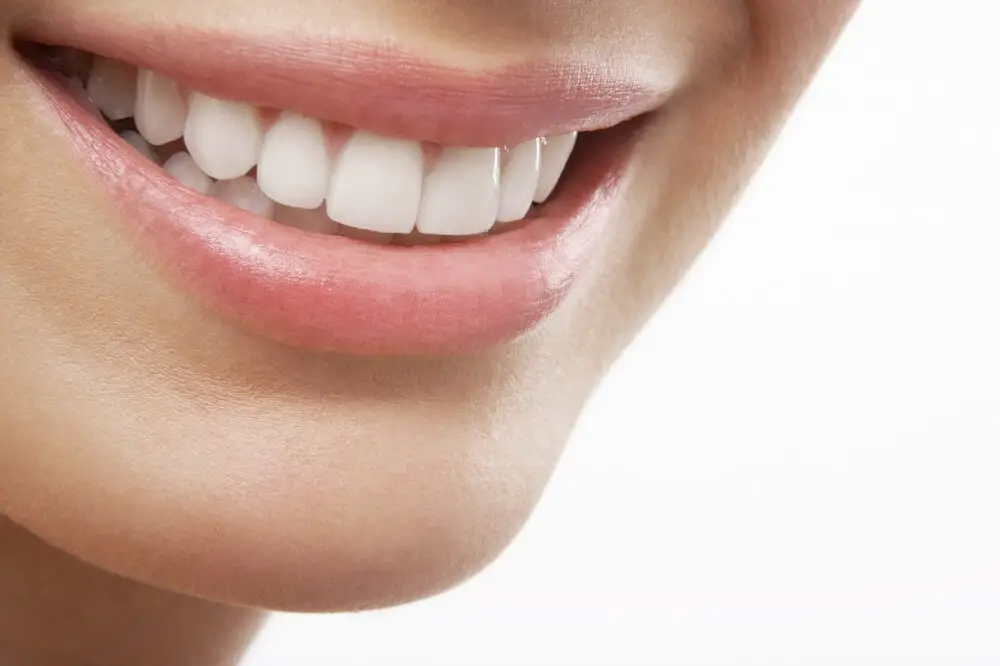
Over-the-counter products are a popular option for people looking to whiten their teeth at home. These products are readily available and often more affordable than professional teeth whitening treatments. Over-the-counter teeth whitening products can come in a variety of forms, including whitening strips, gels, and toothpaste. While these products can be effective, it is important to use them properly and follow the instructions carefully to avoid damaging your teeth or gums. Some over-the-counter products may also be less effective than others, so it is important to do your research and choose a product that has been clinically tested and proven to be safe and effective. One benefit of using over-the-counter teeth whitening products is that they can be used in the comfort of your own home. This can be especially convenient for people with busy schedules who may not have time to visit a dentist for professional teeth whitening treatments. Additionally, many over-the-counter products can be used on a regular basis to maintain your results and keep your teeth looking white and bright. However, it is important to remember that overuse of these products can damage your teeth, so it is important to follow the instructions carefully and not use them more often than recommended.
Whitening toothpaste is a popular and convenient option for those looking to brighten their teeth at home. These toothpastes contain ingredients such as hydrogen peroxide or baking soda that help to remove surface stains on teeth. While they may not provide dramatic results as professional teeth whitening treatments, they can be effective for maintaining a brighter smile. However, it is important to note that overuse of whitening toothpaste can lead to tooth sensitivity and enamel erosion. It is always best to consult with a dentist before beginning any at-home whitening regimen.
Whitening strips are a popular at-home teeth whitening remedy. These strips are made of thin, flexible plastic that is coated with a peroxide-based gel. To use them, you simply place the strip over your teeth and press it into place. The gel then works to remove surface stains and discoloration from your teeth. While whitening strips can be effective for some people, they may not work as well for others. It’s also important to note that overuse of whitening strips can cause sensitivity and damage to your teeth and gums. If you’re considering using whitening strips, be sure to follow the instructions carefully and consult with your dentist first to ensure that they’re safe for you to use.
Whitening trays are a popular method for at-home teeth whitening. These trays are custom-made to fit over your teeth, and they are filled with a whitening gel that you apply to your teeth. The gel contains peroxide, which works to break down stains on the surface of your teeth. The trays are worn for a set amount of time each day, usually for several hours at a time. While this method can be effective, it’s important to follow the instructions carefully to avoid damaging your teeth or causing sensitivity. It’s also important to note that whitening trays may not be suitable for everyone, especially those with sensitive teeth or existing dental work such as fillings. Consult with your dentist before trying whitening trays to ensure they are safe for you.
Whitening pens are one of the most convenient and effective methods to whiten teeth at home. These pens are easy to use and can be applied directly to the surface of the teeth. They contain a gel that is usually made up of hydrogen peroxide or carbamide peroxide, which helps to break down the stains on the teeth. The gel is applied to the teeth using a brush applicator, and the teeth are left to dry for a few minutes. Most whitening pens can be used once or twice a day, and it is recommended to use them for at least two weeks to see desired results. Whitening pens are a great option for those who have busy schedules, as they can be used on-the-go and are easy to carry around.
Lifestyle Changes
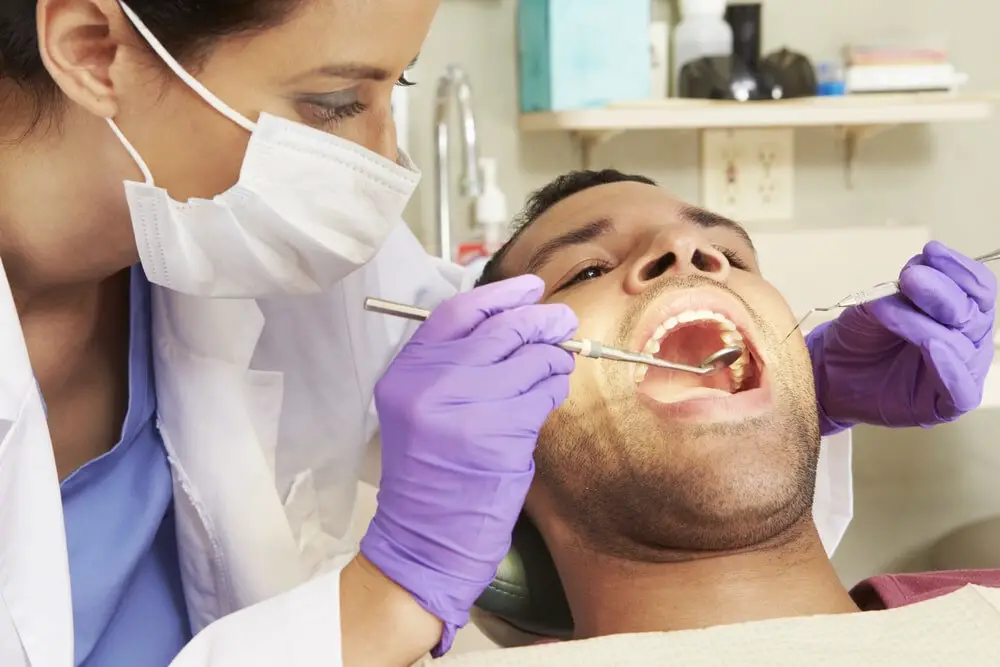
Lifestyle changes are an essential aspect of maintaining good oral health and achieving a brighter smile. Some of the simple changes include avoiding foods and beverages that can stain your teeth, such as coffee, tea, red wine, and dark-colored fruits. Additionally, incorporating more fruits and vegetables into your diet can help keep your teeth healthy and strong. Regular hydration is another important factor, as drinking plenty of water can help flush out harmful bacteria and keep your mouth and teeth clean. Maintaining good oral hygiene habits such as brushing and flossing daily is also crucial for optimal dental health and a brighter smile. Another lifestyle change to consider is reducing your intake of sugar and processed foods. These types of foods can lead to tooth decay and discoloration, so it’s important to limit their consumption. Instead, opt for whole foods such as lean proteins, whole grains, and fresh fruits and vegetables. Exercise is also an important lifestyle change to consider, as it can improve overall health and help reduce inflammation in the body. This can have a positive impact on oral health and lead to a brighter, healthier smile. By making these lifestyle changes, you can take control of your oral health and achieve a brighter, more confident smile naturally.
When it comes to teeth whitening, prevention is just as important as treatment. One way to avoid dental staining is by being mindful of the food and drinks we consume. Certain foods and beverages such as coffee, tea, red wine, and dark-colored sauces can leave unsightly stains on teeth. It’s best to limit consumption of these items, or if indulging, use a straw to minimize contact with teeth. Additionally, brushing or rinsing the mouth with water after eating or drinking can help remove any surface stains. By being mindful of what we consume, we can help maintain a brighter, whiter smile.
Drinking water after consuming stain-causing substances is a simple yet effective step towards maintaining a brighter smile. Stains on teeth can occur due to various reasons such as drinking coffee, tea, or red wine, smoking, or consuming certain foods. These substances can leave behind pigments that can discolor the teeth over time. However, by drinking water after consuming these substances, you can help wash away the pigments and prevent them from settling on your teeth. Additionally, staying hydrated is essential for maintaining good oral health as it helps to prevent dry mouth, which can lead to tooth decay and bad breath. So, make sure to drink plenty of water throughout the day, especially after consuming staining substances, for a brighter and healthier smile.
One of the most important aspects of maintaining healthy and white teeth is by brushing and flossing regularly. Brushing at least twice a day with a fluoride toothpaste can help remove surface stains and prevent the buildup of plaque and bacteria. It is also important to floss at least once a day to remove any food particles and plaque that may be hiding between teeth and in hard-to-reach areas. By regularly brushing and flossing, you can not only maintain a white and healthy smile, but also prevent potential dental problems such as cavities and gum disease. So, make sure to prioritize your dental hygiene routine and keep your teeth looking bright and beautiful.
While DIY teeth whitening remedies may be effective to some extent, it’s important to remember the importance of getting regular dental cleanings. Professional cleanings not only remove surface stains, but also help prevent gum disease and tooth decay. Neglecting regular cleanings can result in build-up of plaque and tartar which can lead to more serious dental issues down the road. Additionally, a dentist can provide personalized recommendations for maintaining a bright, healthy smile. So, while at-home remedies may provide temporary results, it’s crucial to prioritize regular dental check-ups and cleanings for optimal oral health.
Precautions

When it comes to DIY teeth whitening, precautions are essential to ensure that the process is safe and effective. One of the most crucial precautions is to avoid using abrasive materials on your teeth, as they can damage the enamel and cause tooth sensitivity. Baking soda and activated charcoal are popular options for teeth whitening, but they should be used in moderation and with caution. Excessive use of these products can erode the enamel and lead to weaker teeth. Another important precaution is to avoid using lemon juice as a whitening agent. While lemon juice has natural bleaching properties, it is highly acidic and can damage the enamel on your teeth. Instead, opt for safer and more effective options such as hydrogen peroxide or whitening strips. Additionally, it is important to consult with your dentist before attempting any DIY teeth whitening remedies, particularly if you have sensitive teeth or existing dental work such as fillings or crowns. Your dentist can advise you on the best course of action and help you avoid any potential risks or complications.
While teeth whitening is a popular cosmetic procedure, it comes with its own set of risks and side effects. DIY teeth whitening remedies can cause tooth sensitivity, irritate gums, and damage enamel. Overuse or misuse of products containing hydrogen peroxide or other bleaching agents can lead to chemical burns and permanent damage to the teeth and gums. Additionally, teeth whitening may not be suitable for everyone, especially those with weakened or damaged teeth, as it can exacerbate existing dental problems. It is important to consult with a dentist before trying any DIY teeth whitening remedies to assess the risks and potential side effects.
It is highly recommended to consult with a dentist before using any teeth whitening products, including DIY remedies. While these remedies may appear harmless, they can still have adverse effects on your teeth and overall oral health if not used correctly. A dentist can evaluate the current state of your teeth and gums and recommend the best course of action for achieving a brighter, healthier smile. Additionally, some teeth whitening products may not be suitable for individuals with certain dental conditions or sensitivity issues. By consulting with a dentist, you can ensure that your teeth whitening journey is safe and effective, and that you achieve the best possible results while maintaining the health of your teeth and gums.
When it comes to DIY teeth whitening, following instructions carefully is of utmost importance. While home remedies can be effective and affordable alternatives to professional teeth whitening treatments, they can also be risky if not used correctly. For example, some remedies may contain acidic ingredients that can damage tooth enamel if left on for too long or used too frequently. Other remedies may require precise measurements or specific application techniques to achieve optimal results. Therefore, taking the time to read and follow instructions carefully can not only ensure the safety of your teeth but also increase the effectiveness of the treatment.
There are various home remedies, over-the-counter products, and lifestyle changes that can help whiten teeth. Home remedies include using baking soda, hydrogen peroxide, or apple cider vinegar to brush teeth. Over-the-counter products like whitening toothpaste, strips, and gels can also be effective. Lifestyle changes such as avoiding foods and drinks that cause staining, quitting smoking, and practicing good oral hygiene can also improve the whiteness of teeth. It’s important to note that while these methods can be effective, they may not work for everyone and it’s always best to consult with a dentist before trying any whitening treatment.
It is crucial to emphasize the importance of caution and professional consultation with a dentist before attempting any teeth whitening method independently. While home remedies for teeth whitening can be effective, they can also be risky and may cause unwanted side effects. A dentist can provide valuable guidance on the safest and most effective teeth whitening methods, as well as assess the health of your teeth and gums to ensure they are strong enough to handle the whitening process. It is always better to be safe than sorry when it comes to the health of your teeth, and consulting with a dental professional can help you achieve a brighter, healthier smile without the risk of causing damage to your teeth.
Conclusion
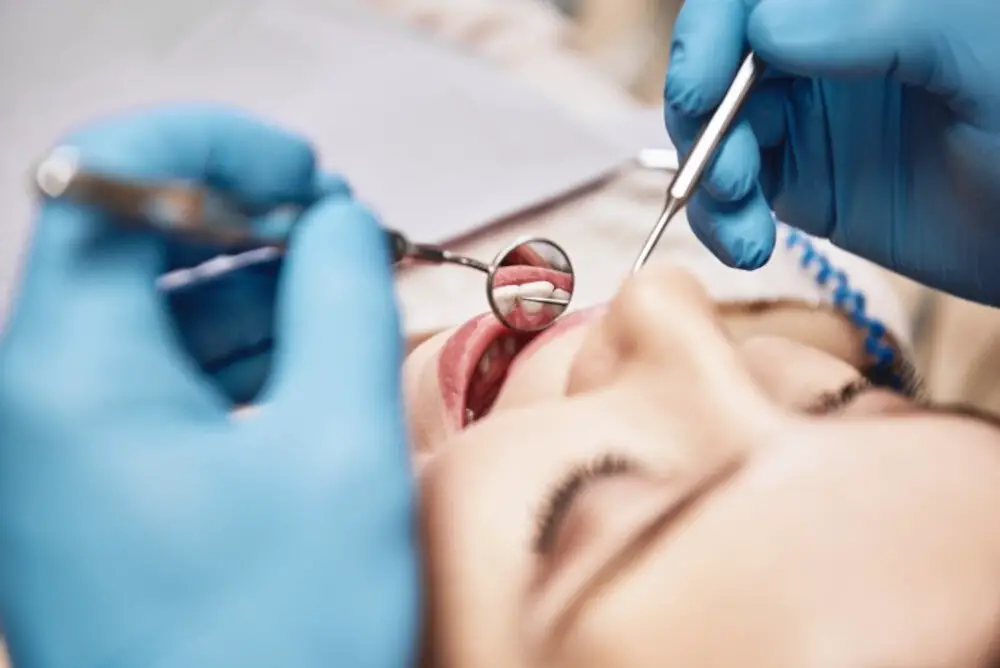
In conclusion, DIY teeth whitening can be an effective and affordable way to brighten your smile from the comfort of your own home. While there are many remedies available, it is important to exercise caution and do your research before trying any new methods. It is also important to note that teeth whitening may not be suitable for everyone, especially those with certain dental conditions or allergies. Consulting with a dentist is always recommended before attempting any teeth whitening treatment. With the right approach, however, you can achieve a brighter, more confident smile that will leave you feeling great about yourself.


